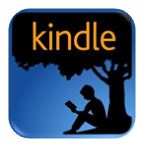by Grace Topping
Reading is a wonderful form of escapism, and novels set in a different time and setting elevate escapism to an even higher form. Considering some of the dismal current events and the lingering winter weather, I was delighted to escape into K. B. Owen’s historical Concordia Wells mystery series. I think readers will agree that the fictional world she has created is definitely worth visiting.
Dangerous and Unseemly
The year is 1896, and Professor Concordia Wells has her hands full: teaching classes, acting as live-in chaperone to a cottage of lively female students, and directing the student play, Macbeth.
But mystery and murder are not confined to the stage. Malicious pranks, arson, money troubles, and the apparent suicide of a college official create turmoil at the women’s college. For Concordia, it becomes personal when a family member dies of a mysterious illness, and her best friend is attacked and left for dead.
With her friend still in danger and her beloved school facing certain ruin, Concordia knows that she must act. But uncovering secrets is a dangerous business, and there are some who do not appreciate the unseemly inquiries and bold actions of the young lady professor. Can she discover the ones responsible…before she becomes the next target?
Welcome, K. B., to Writers Who Kill.
You set your Concordia Wells series at a fictitious women’s college in Hartford, Connecticut, in the 1890s. Why Hartford, and why the 1890s?
 |
| K. B. Owen |
I lived in the Hartford area for several years, and it has a lot of history: the Colt factory, thread mills, the Asylum for the Deaf, and so on. Its most notable author, of course, is Samuel Clemens (Mark Twain). But “why Hartford” is more a question of why I set my series in a women’s college. Dorothy Sayers’ Gaudy Nightwas a huge influence in that respect, and with my college teaching background, it felt like a natural choice. Since many of the women’s colleges of the time period were in New England (Smith, Wellesley, Mt. Holyoke, Radcliffe), Hartford was a good fit.
With a doctorate in 19thcentury British literature, why did you choose to set your books in the U.S. and not in Britain?
The overwhelming reason was the speech. I felt better able to write American dialogue than British. Also, there already seem to be more 19thcentury mysteries set in Britain than in the U.S.
What inspired you to write a mystery series?
When something becomes such an important part of your time growing up as mysteries were for me (Nancy Drew, Scooby-Doo, Sherlock Holmes, et al), and then it continues into your adult years, you want to become even more involved. I wanted to contribute to the genre that has given me so much pleasure and escapism over the decades. I hope I’ve brought that to my readers!
Concordia Wells teaches at a women’s college. What were some of the challenges she faced being an unmarried woman and a teacher during the 1890s?
It was not at all common for women to attend college in the late nineteenth century, much less become a college professor. The more conservative segment of the population considered college a hotbed for godless radicals, and worried that young ladies would either be led astray or rendered unmarriageable because they were “masculinized.” Some of the more out-there theories even posited that intense studying caused physical damage, hurting a woman’s brain and perhaps even her “delicate” reproductive system. I kid you not. Physician and Harvard professor Edward H. Clarke wrote a book about it (1874), and vehemently opposed the admittance of women to his school.
But even after clearing the hurdles of earning a degree and finding employment, women could not be married and have a career. A woman’s livelihood was considered an economic necessity while she was single, but laid aside once she married. As a single woman who teaches at Hartford Women’s College, Concordia’s time was not really her own and her behavior was regulated, compared to a male teacher at the same institution. She not only taught classes, but also acted as chaperone/surrogate mother to the students living in her charge in the cottage dormitory.
Have we gotten beyond many of those issues, or are women still facing them on college campuses today?
A great deal has changed, but awareness campaigns such as #MeToo show us that we still have more work to do.
In the first book of your series, Dangerous and Unseemly, Concordia is faced not only with the identifying a murderer but also solving the mystery of her sister’s strange illness. The illness raises social/medical issues of the times. What do you hope people will gain reading about these issues and reading historical mysteries in general?
We take a lot for granted now, and I think it’s important to see some of the struggles from an earlier time. None of these issues were changed until people stepped in and worked for them, sometimes at great personal cost. I’m sure many readers recognize issues in our world that still need our attention. It’s a commonality between the Progressive Era and ours.
What is the biggest challenge you face writing historical mysteries?
I’d say my biggest challenge is researching the small details that will bring the period alive for the reader. I’m grateful for the scholars and curators who have answered my questions over the years.
You had a career teaching at the college level. Did any of your experiences while teaching make their way into your books? Do any of your former staff members or students claim to be in your books?
No one has claimed to be represented in my books. At least, not yet. I taught at the University of Connecticut and then George Washington University, about a dozen years all together. Of course, I never served as a dorm mother or anything like that, but yes, there are certain interactions, exchanges, and shall we say…personalities…that have crept into my books. That “absent-minded professor” type is definitely a thing, let me tell you. After reading and researching the doings, pranks, traditions, and interests of 1890s college students, I’m of the opinion that people are much the same in every time period.
You chose to self-publish. As a recipient of the 2015 Library Journal Self-Publishing EBook Award, it appears you’ve been successful taking that approach. What prompted you to self-publish?
First of all, let me say that each route—traditional or indie—has pros and cons. You have to pick what’s right for you. When I started the process to traditionally publish my book, I didn’t even know that self-publishing was a viable option. I signed with Dystel and Goderich (DGLM) in 2010, and we worked together for the next two years to edit my book and find a publisher. But my historical mystery—set in a women’s college and kind of brainy rather than cozy—was a bit too small of a niche, and the historical mystery subgenre was already more glutted than the market could support. We often got the response: “We love it, but we can’t sell it.”
During those years, I learned more about self-publishing. I discovered that, as an indie author, I would have more control, a quicker timeline to publish, and a better royalty percentage. I knew it would be a lot more work and I’d have to pay for my own professionals up front, but I’d be pocketing more in the end. My literary agency has an e-distribution service where they distribute for me and I keep my own rights. That was a good way to start out and learn the ropes. I wound up doing that for book 1 before going completely on my own with the rest of the books.
What advice would you give other writers contemplating self-publication? Anything you wish you had known when you started out?
I published my first book in 2013, and there wasn’t as much acceptance of indie-pubbed authors then as there is now (though we still have a way to go in that respect, in terms of eligibility for certain awards and professional memberships).
That lack of acceptance stung a bit – when you first start out and have those crises of confidence, the validation that comes with being traditionally published just isn’t there. Plus, there’s a huge learning curve and you have to really go hunting for guidance. There will be mistakes along the way (my first cover—the current cover of book 1 is different than the original—is a good example, LOL). It’s okay to make mistakes. Another piece of advice: don’t rush to publication. Take the time—and the money—to hire professional editors and proofreaders to make your work shine. As a former academic, these are all things I already knew and followed, but I think it helps to hear it repeated by others, because it’s hard to spend your own money before you’ve earned a dime. You’re taking a risk on an unknown quantity—your book. But it will be worth it.
How much are you involved with the publication of your eBooks, printed books, and now audio books? Is there a lot of hands-on effort involved?
Oh yes, lots of hands-on involvement. I am both a writer and a publisher, which is a rather intimidating proposition when one first starts out, but it gets easier. Once you’ve found the right cover designer, editors, proofreader, formatter, and narrator/producer, the process is much smoother. I’m still figuring out the promotional end of things, however, and there are always new publishing options that come down the pike to keep you on your toes.
You now have six books in the Concordia Wells series. When you wrote the first book, Dangerous and Unseemly, was it to be a standalone, or did you plan to write a series? Any plans for another series?
I did plan on a series, although I’m as surprised as anyone that I have six books so far. I already have another series going…more details below. And I have additional ideas that aren’t in the sharing stage yet.
The titles for the books in your series include the word unseemly. Other than a way of linking all the books in the series, is there some other significance to the word?
“Unseemly” is a rather old-fashioned word, not much used these days. I wanted to evoke an earlier time. Also, the books emphasize the disparity between ladylike and unladylike behavior, and in the stories necessity sometimes dictates “unseemly” choices. I like to play with the slippage between appearance and substance.
Your book covers show a silhouette of Concordia in different settings—an interesting design. Any significance to just a silhouette?
The cover artist and I decided it was more effective to have the character represented in this way so as to leave her appearance solely to the reader’s imagination. I liked the effect so much I used it for another series as well.
I particularly enjoyed your character who was one of the first female Pinkerton agents (I won’t say more so I don’t create a spoiler). Where did the inspiration for her come from, and I hope we will see more of her in future books?
The inspiration for that particular character comes from the real-life Kate Warne, who in 1853 answered a help-wanted advertisement that Allan Pinkerton had placed in a Chicago newspaper. He thought she was there for a clerical job, but she wanted a job as a detective…and proceeded to convince him that women could equally—if not better—serve in such a capacity. He hired her on the spot, and she helped protect such notables as Abraham Lincoln from a potential assassination plan known as the Baltimore Plot.
Please tell us about other books you’ve written, not in the Concordia Wells series.
I started another series a couple of years ago, using a spin-off character from the Concordia series that readers said they would like to see more of (the character from your question, above). These are shorter—novella length. I call them The Chronicles of a Lady Detective. I’m writing the third one now. I also had a short story published in Malice Domestic’s Mystery Most Historicalanthology (2017), which features shyster spirit-medium Maddy Cartiere, who solves the death of a girl in the Triangle Factory fire of 1911.
I understand that you are a keen gardener. How do you balance family life, gardening, writing, and promoting your books?
Since gardening is a make-hay-while-the-sun-shines type of endeavor, I grab the chance whenever it’s nice, unless a deadline is looming. I’ve been fortunate to be able to write full-time, which I know is a luxury not many writers have. In terms of family, the boys are much older now (the youngest is 17), so I don’t have the challenges that writers with younger children have. Although they do need to be fed once in a while. The business of promoting and being my own publisher does take a lot of time away from writing, but I enjoy the variety and have gotten more efficient at some things.
When you have time, whose books do you enjoy reading?
I always make time for reading. I enjoy mysteries and especially historical mysteries: the works of Stephanie Barron, Anne Perry, Alexander McCall Smith, Margaret Maron, classic mystery authors such as Doyle, Christie, Sayers, Ellis Peters…the list is endless. I also enjoy suspense, and books that make me laugh.
What’s next for Concordia? I hope we’ll see more books in this series.
In book 6, Concordia spent her vacation in the Hamptons, so she will be back at Hartford Women’s College for the 1899 fall semester in book 7. What happens then, I don’t yet know…I’ve been immersed in writing The Case of the Runaway Girl, the third novella of my Chronicles of a Lady Detective series.
Thank you, K.B.
To learn more about K. B. Owen, visit her web site: https://kbowenmysteries.com
Order her books from the following:
Also available as an audiobook!













Hi,K.B., welcome to Writers Who Kill, what a great interview. Thank you for sharing your path, and congratulations. The Progressive Era is a fascinating time period and a great time to set mysteries. I'm looking forward to a binge read!
ReplyDeleteEverything about your books and writing journey is so interesting! Thanks to Grace for a terrific interview.
ReplyDeleteGreat interview, Grace and KB - so much here I found interesting. Your books are so enticing, KB. I, too, am fascinated by the history of women during the Progressive Era, education, and British literature. My older daughter and one of my aunts went to women's colleges (One of which was Hartford College for Women!) so I am on board!
ReplyDeletePlus you said "I kid you not" which is one of my favorite catch phrases. I'm from CT and have only heard it here.
The Gilded Age is such a fascinating period in American history. The technology changes, growth of the American empire, and political changes all still inform our ways of thinking over a hundred years later.
ReplyDeleteYour series sound interesting, I wish you continued success.
It seems to me that historical mystery writers become fascinated by a period of time and readers get to experience what it was like. back then.
ReplyDeleteThank you so much for hosting me, Grace! Your questions were spot on. I love talking about mysteries, colleges, life for women back in the day, and so on. And I appreciate being asked about my writer journey, too. It's an amazing feeling when authors get together to support each other...as we all know, writing can be quite solitary.
ReplyDeleteI can't seem to find a reply button to answer each of you individually, but I wanted to thank you all for your wonderful comments: Kait, Margaret, Shari, Jim, and Warren - thanks so much!
Shari - I was never sure where I picked up "I kid you not" but now I'm wondering if it was indeed during my time in Connecticut, LOL. "Let me tell you" may have come from there, too. *wink* And how wonderful that you have a family experience with women's colleges! Hartford College for Women was created after the time period I write about, but that worked out for me, because I wanted to create a fictitious one and put the buildings wherever I pleased. :)
See you all around the internet, and thanks again for hosting me!
K.B. your books sound fascinating. I wrote the first down to be ordered, but I'm hoping you'll be at Malice so I can buy it there and get it signed. I'm sure once I read the first one, I'll be hooked and want to keep on reading your series.
ReplyDeleteGloria, you're so sweet, thank you! I'm driving distance (45 min) to Malice, but haven't made up my mind if I'm going to go for a day. But so many friends I know are going to be there...I'm tempted!
ReplyDeleteI love historic mysteries! They take a special touch from the author--getting not only the details right (what kind of shoes would a woman professor wear at that time?) but also a feel for the period.
ReplyDeleteSome of my family has root in Hartford (my grandfather was a gunsmith at Colt) so I'm especially interested in this series!
I've read several books in this series--all well written and delightful. I learn a lot about the time period from each one. I especially enjoyed Unseemly Haste, which involves a railroad trip across the United States.
ReplyDelete